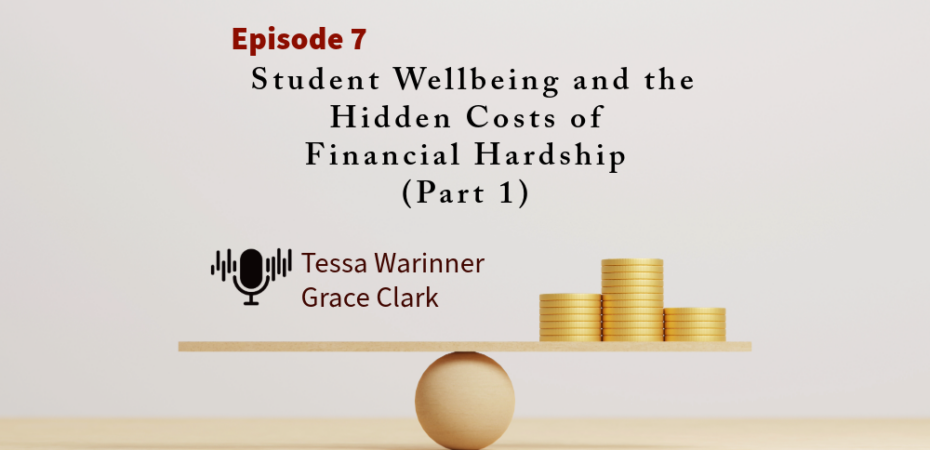
In this episode, Tessa Warinner, Student Wellbeing Adviser at the university, chats with Grace Clark, president of The University of Edinburgh branch of the 93% club↗️. They discuss the challenges state-educated students face as they transition to university. Listen to how 93% club is making a difference in levelling the playing field for these students. This episode belongs to Podcast series: Student Wellbeing↗️.
Grace begins the conversation by introducing the organisation 93% club and outlining their main objectives:
“In terms of what our club does specifically, it can sort of say that we have three main aims. First one is the campaigning work we do, so it’s the State School Proud campaign, which we are in our third year of doing. We’ve done other campaigns to reinstate the participation grant here, we’ve campaigned for cost-of-living payments, that side of it.
We have the professional and careers side of it, we really recognise that state educated students… will often have never had to produce a CV before or know what a good covering letter looks like and their school won’t have prepared them for that either. It means that they can be at a disadvantage when it comes to applying for grad jobs and internships compared to their privately educated peers…
The third thing we do is socials and socialising. We make sure everyone feels welcome and everyone has a space to vent and have fun with like-minded people.”
Tessa then reflects on her work as a wellbeing adviser and how she encourages people to build up their support networks by joining societies that interests them. It has been well documented that students who feel that they have a group of friends that understand them, feel they can ‘belong’ (you can read more about this phenomenon here). Grace echoes this by explaining how the club recognises the impacts that feeling isolated due to your financial background can have on student mental health:
“We’ve done events with the wellbeing service specifically about looking after your mental health. I think it’s a really big thing that state educated students often won’t sort of realise this a factor until they come to the club or have other moments of realisation. They realise that they are feeling so isolated. We’ve heard stories about people who are often the only person in their tutorial group that is state educated. They feel like they can’t contribute because everyone else is privately educated. That really takes a toll on your mental health.
As well, the financial burden of being state-educated and from a widening participation background can be very heavy. You know, constantly worrying about if I can make rent next month, will I be able to pay my electricity bills, can I feed myself, all of that is an extra mental load”
Financial stress on undergraduate students has become part of the wider conversation around mental health in light of the cost-of-living crisis. Students in a 2021 qualitative study↗️ reported feeling financial stress distracted them from their academic studies, exclusion from social experiences they wanted to participate in, and feeling embarrassed when they have to explain their financial constraints to others.
Grace talks about how it feels in a student’s day-to-day life with these worries hanging over them:
“It’s really about that lack of a safety net. It’s really about not feeling like they have somebody they can rely on. They have to deal with the… academic struggles of a rigorous four-year degree and then deal with supporting themselves financially.”
Grace and Tessa discuss some of the options available to The University of Edinburgh students for accessing financial support, including student finance organizations and government assistance, as well as the challenges in accessing them.
Tessa asks about Grace’s experience growing up in a working-class background in rural North Yorkshire. She recounts how she found how her school experience was different from her peers who were from more privileged backgrounds. This discussion continues in part two.
Timestamps
(0:53) – Tessa and Grace – Introductions
(1:42) – What is 93% club? Who is it for? What do they do?
(5:00) – How mental health and wellbeing of the members fit into the club’s goals
(11:58) – How being economically and educationally disadvantaged can impact a student’s wellbeing
(12:16) – Financial hardships and discussion around access to financial assistance
(17:43) – Grace’s experience with growing up in a working-class family.
Tessa Warinner
Tessa is a Student Wellbeing Adviser at the Student Wellbeing service, The University of Edinburgh.
Grace Clark
Grace is the president of the Edinburgh branch of 93% club. She is a third year Philosophy and Politics student at The University of Edinburgh.


